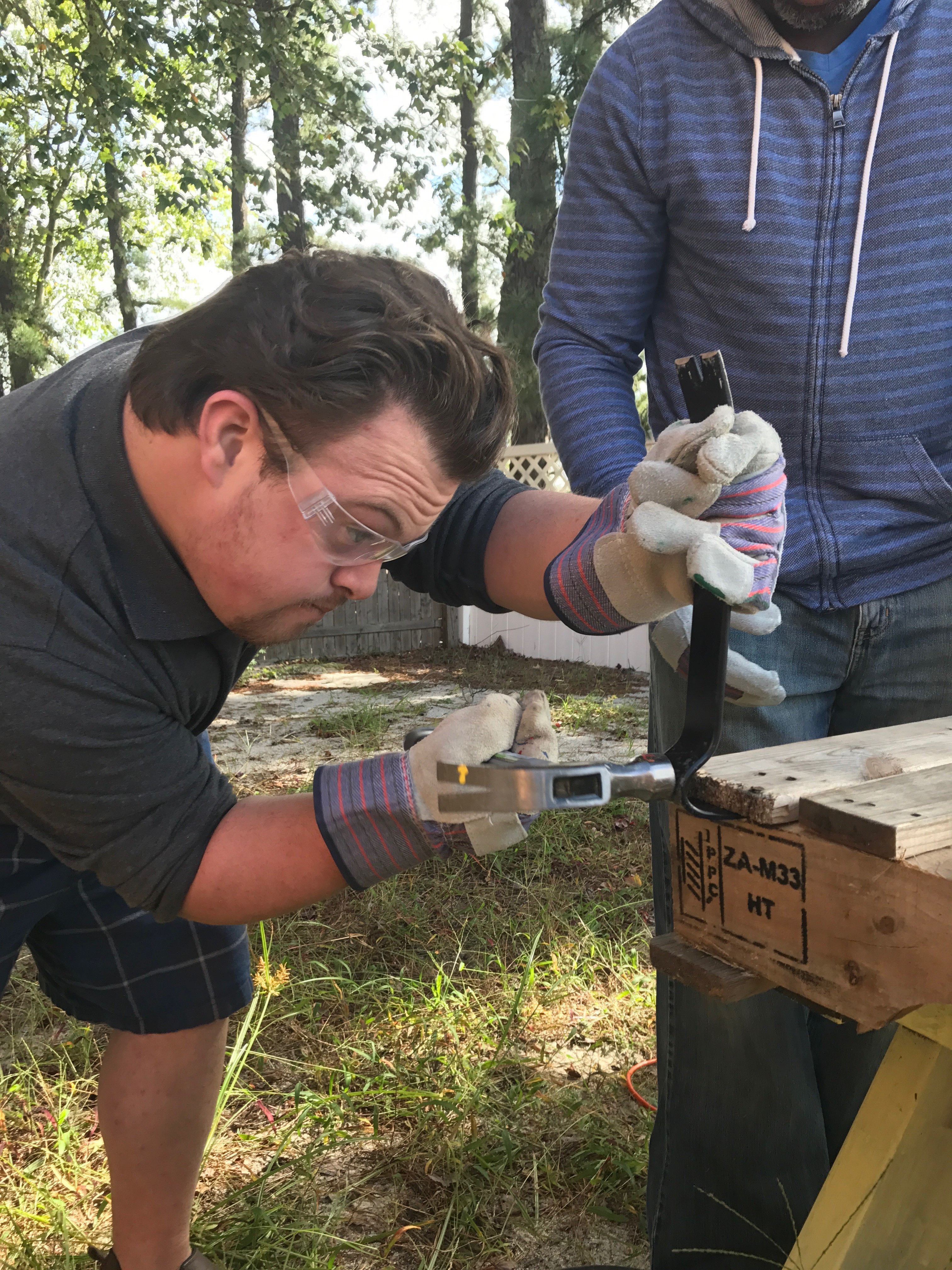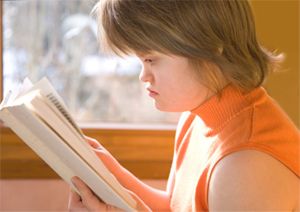"Toby's Friends" SUPPORT GROUPS FOR SIBLINGS
Partial Funding for Toby's Sibling Groups from Monmouth Park Charities, the M. Bell Family and the Schoeller Family.
At FRA the entire family matters! Siblings often have questions and concerns that they can readily explore with others who are experiencing a similar situation. At home they may feel left out or they don't want to put more on their family. Coming to a group, they realize they are not alone dealing with difficult issues at times. Resources are also available to help familes with all of their children.
-
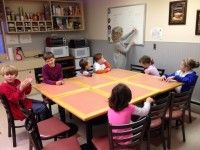 Toby's Friends Sibling Support Group - Ages 4-9
Toby's Friends Sibling Support Group - Ages 4-9Plan to attend one of our monthly support groups for young brothers and sisters of children with special needs. These fun activity sessions combine art, stories, and role playing. There's also a discussion to answer questions, talk about differences, and solve problems. Children are welcome to attend monthly or occasionally as their schedule allows. Next meeting is held from 4-5 at FRA, the last Thursday of the month.
2016/17: Sept. 29, Oct. 27, Dec. 1(due to Thanksgiving), Jan. 26, Feb. 23, Mar. 30, Apr. 27, May 25, 4:00-5:00.
Children are welcome to attend all sessions, or just an occasional one as their schedule allows. There is no charge for this group.
RSVP is needed in advance of each meeting by calling Sue Levine at 732-747-5310, ext. 117 or by email: slevine@frainc.org. -
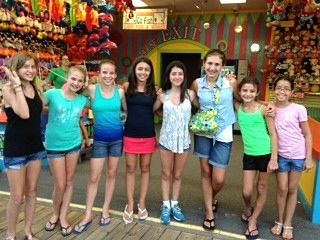 Toby's Friends Sibling Support Group - Ages 10-15
Toby's Friends Sibling Support Group - Ages 10-15Older brothers and sisters of children with disabilities have growing concerns about what the future holds for them and their sibling. This quarterly program is held at various locations that feature food, discussion and fun! Join us for an interesting meeting designed to answer questions and explore feelings related to having a brother or sister with special needs. This meeting may be held while bowling, at the boardwalk or in a park!
SUMMER 2016 Meeting: August 11, 2016, 5:00 - 7:30PM at Jenkinson's Aquarium on the Boardwalkk in Point Pleasant. Join us for our next brothers and sisters meeting. We will discuss what it's like to be a sibling of someone with differing abilities. We will share feelings and worries, solve problems and learn more about various disabilities. This is a great way to share and learn from other students with interesting families just like yours! RSVP to Sue at 732-747-5310, ext. 117 or slevine@frainc.org.Do you know any other students who might be interested in this program? Please spread the word!
-
WRITTEN BY BROTHERS AND SISTERS AGED 10-15 WHO ATTEND SIBLING GROUPS AT FRA
WHAT IS IT LIKE TO HAVE A SIBLING WITH DOWN SYNDROME, AUTISM, CEREBRAL PALSY OR OTHER DISABILITIES?
JUST ASK THE KIDS WHO KNOW!
• Having a sibling with a disability can be really good. One good point is the special privileges. Some groups host parties or events that can be extremely exciting…… and siblings can attend too!
• Brothers and sisters can have many feelings toward their sibling with a disability. They could feel angry, sad, all kinds of things. When they do something annoying, you can get aggravated. When they are calm, you can be relaxed.
• Some days, your sibling can give you a hard time. And sometimes, you just want to trade your life for someone else’s.
• People who have a brother or sister with a disability are very lucky because they are special and most of the time, you don’t want them to change.
• Sometimes, others use the R-word. Using this word isn’t cool. It doesn’t make you a better person. I can make the whole family feel bad.
• Sometimes you feel like it’s not fair because they need more help and attention. Your parents have to constantly be taking care of them. It gets annoying because you can’t spend as much time with your parents.
• They make you happy when they are happy!
• Life is like a fun house for them. It twists and turns, it’s loud and dark. It can be confusing for them.
• When you have a sibling with a disability, it can be hard on your parents. They sometimes get stressed and grouchy.
• Sometimes you may get paranoid with your sibling and you want your brother or sister to be normal. But most of the time we try to think of the positive not negative. But some days, you want to feel negative!
• Being a sibling is like being invisible and being in the spotlight at the same time. When everybody loves them because they are “cute,” you feel like you’re not even there. But when they cause a scene, everyone loves to stare.
• Despite all this, it only adds to your experience. You have some great stories to tell! Having a brother or sister with a disability makes life a whole lot more interesting!! -
FASTEN YOUR SEATBELT......"A crash course on Down Syndrome for brothers and sisters," written by Brian Skotko and Susan Levine. Sue Levine, one of FRA's co-founders, initiated NJ's premier program for siblings, including monthly groups and newsletters. A wealth of information for parents and siblings, this book reflects her experience, compassion and wisdom for all brothers and sisters.
NOW AVAILABLE IN A KINDLE VERSION!!
Download HERE
Our Sibling Groups are made possible in part by the support of the Bell Family in memory of their son, Toby. Toby's siblings greatly enjoyed and benefited from attending these groups when they were young.
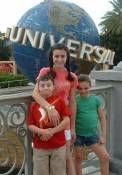
From A Sibling's Perspective,
by Luisa Rinaudo
When people speak to one another, the voice that is heard, matters. It's the voice that tells the person they are special and that no one should tease you for your inability to lead a normal life. I realize this as I watch my 12 year old brother, Sal, who has Down syndrome. He demonstrates that he is eager to learn something new everyday. I see as he struggles to do something as tedious as to write his full name or tie his shoes. But he persists and now he can do these things independently. He looks up at me with his endearing brown eyes and freckled face every time he accomplishes a goal only showing me his unconditional love. You may not realize how much one word can affect a person especially those who can't defend themselves. I think the "R" word is one of the most disrespectful words that can change the way we look at a person; especially someone who has a mental or physical disability.
Read more about how much Luisa loves her brother and her campaign to have people stop using this derogatory and hurtful word.
Click below to read more about how much Luisa loves her brother and her campaign to have people stop using this derogatory and hurtful word.

